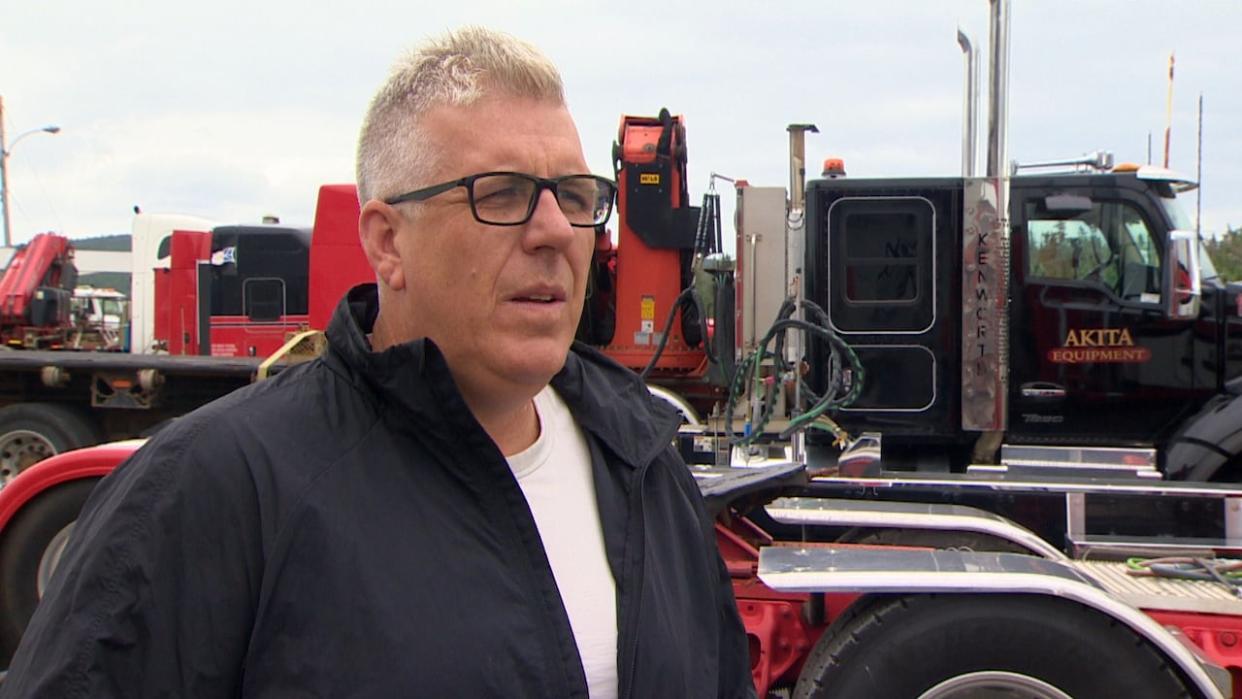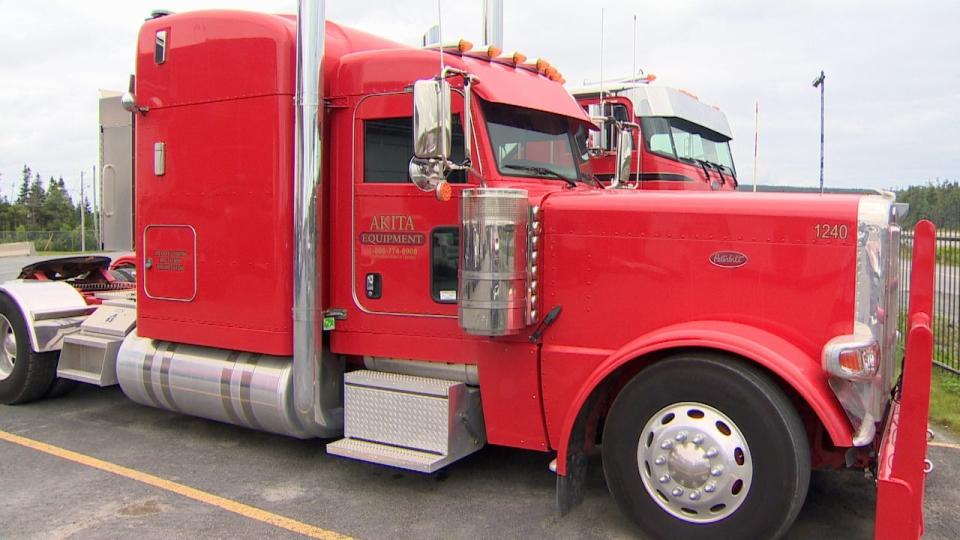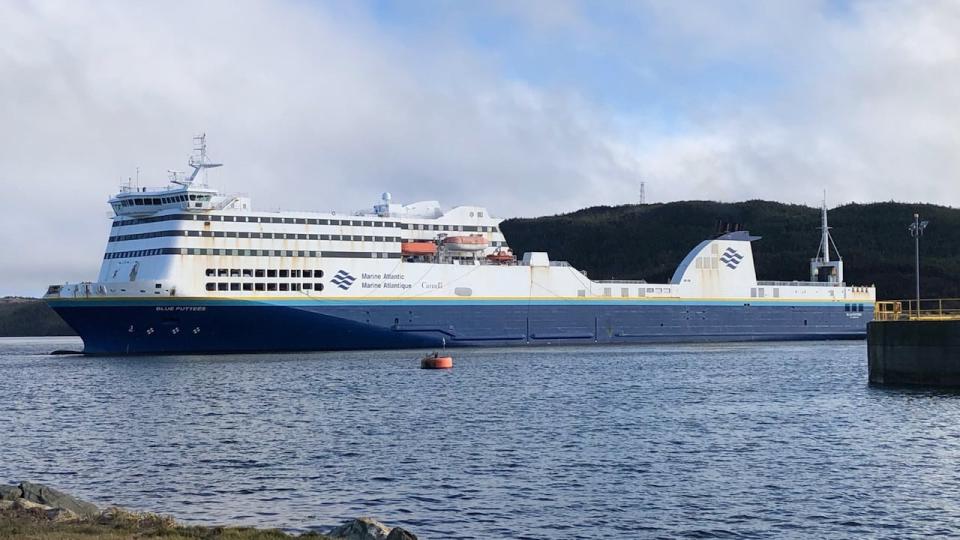Shuteye shutout: Transport companies say pilot drivers need sleeper cabins on Marine Atlantic ferries


Chris Howlett, president and CEO of Akita Equipment in St. John's, says there are problems with booking commercial crossings on Marine Atlantic ferries. (Danny Arsenault/CBC)
Some transportation businesses in St. John's are taking issue with Marine Atlantic regulations that keep pilot drivers out of sleeper cabins during ferry crossings, despite being commercial drivers travelling long distances.
Pilot vehicles — also called escorts — lead or follow transport trucks carrying oversized loads. Pilots are required under the Highway Traffic Act and alert other motorists of possible upcoming road hazards.
When travelling between Newfoundland and mainland Canada on Marine Atlantic ferries, transport truck drivers are registered as commercial vehicles and are booked into sleeper cabins, also called berths, to get the required rest needed after a long drive and before another.
But the pilot driver — in a vehicle under 30 feet — leading or following that truck is booked as a regular passenger and isn't guaranteed a sleeper cabin, despite clocking the same hours and distances.
Chris Howlett, owner and operator of Akita Equipment & Auto Transport, says it's a big problem for logistics and safety.
"If we send a pickup across, if we can't get a berth for him, he has to get off the ferry then and go to a hotel to go to sleep," Howlett said Monday.
"There should be an option for them to have a berth."
In that situation it means the transport truck wouldn't move an inch while the pilot driver gets their required rest at a hotel.

Trucks like these are booked commercial, which comes with a sleeping berth for the driver. A pilot vehicle is considered a regular passenger. (Danny Arsenault/CBC)
In a statement to CBC News, Marine Atlantic said it does make arrangements for pilot drivers.
Pilot drivers are booked as passenger vehicles but are "treated specially," said the company's statement. They can't buy a sleeping berth but the driver of the commercial vehicle can purchase a cabin upgrade that can accommodate both drivers. Units are designated as either passenger or commercial based on the unit type.
"There is very significant demand for cabins onboard Marine Atlantic's vessels. Unfortunately, in the past, some customers were claiming to be commercial to access commercial vehicle space or a commercial berth," reads the statement.
"We recognize that many of our customers require rest as part of their overall journey. With the significant demand for our cabins, there are simply not enough to meet overall demand."
But that doesn't solve all of Howlett's problems.
He'll send pilot drivers off the island to escort a transport truck back. However, on a trip off the island the driver isn't considered a pilot but on the return trip they are.
"When he gets off the ferry and I need him in a certain place at a certain time, he might have to go to bed in Nova Scotia for eight hours before he can go there," Howlett said.
"There's never any passenger cabins available. They're oversold. This is the issue that we have. They can't make capacity."

Marine Atlantic says there is an option for commercial drivers to upgrade their cabins to have space for their pilot drivers but sometimes there are simply not enough cabins to meet the demand. (Marine Atlantic/Twitter)
Billy Farrell, president of Farrell's Excavating, has the same challenges.
In an email to CBC News last week, Farrell said denying commercial drivers a sleeping berth is denying them access to the proper rest time they need to do their jobs safely.
"[They] are simply putting our commercial drivers and the motoring public at risk for even more highway accidents all throughout our province," Farrell wrote.
Marine Atlantic said it encourages all customers to make travel plans that best serve their individual needs.
"We will continue to have a designated number of cabins and commercial berths reserved for commercial customers on each crossing," the company said.
Get the news you need without restrictions. Download our free CBC News app.


